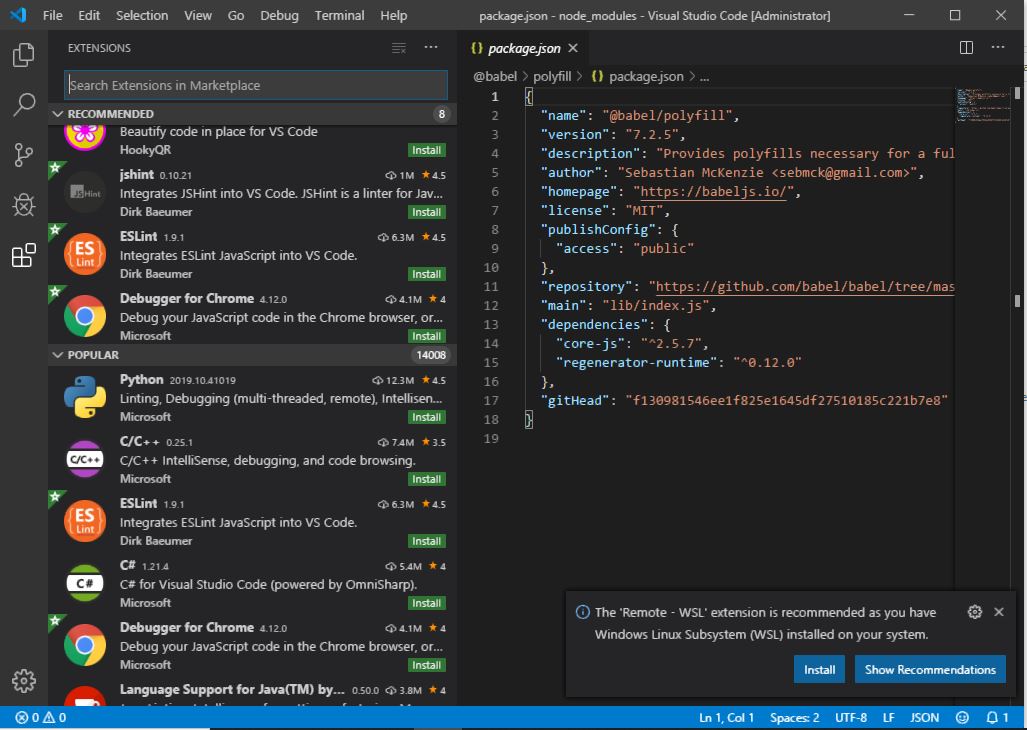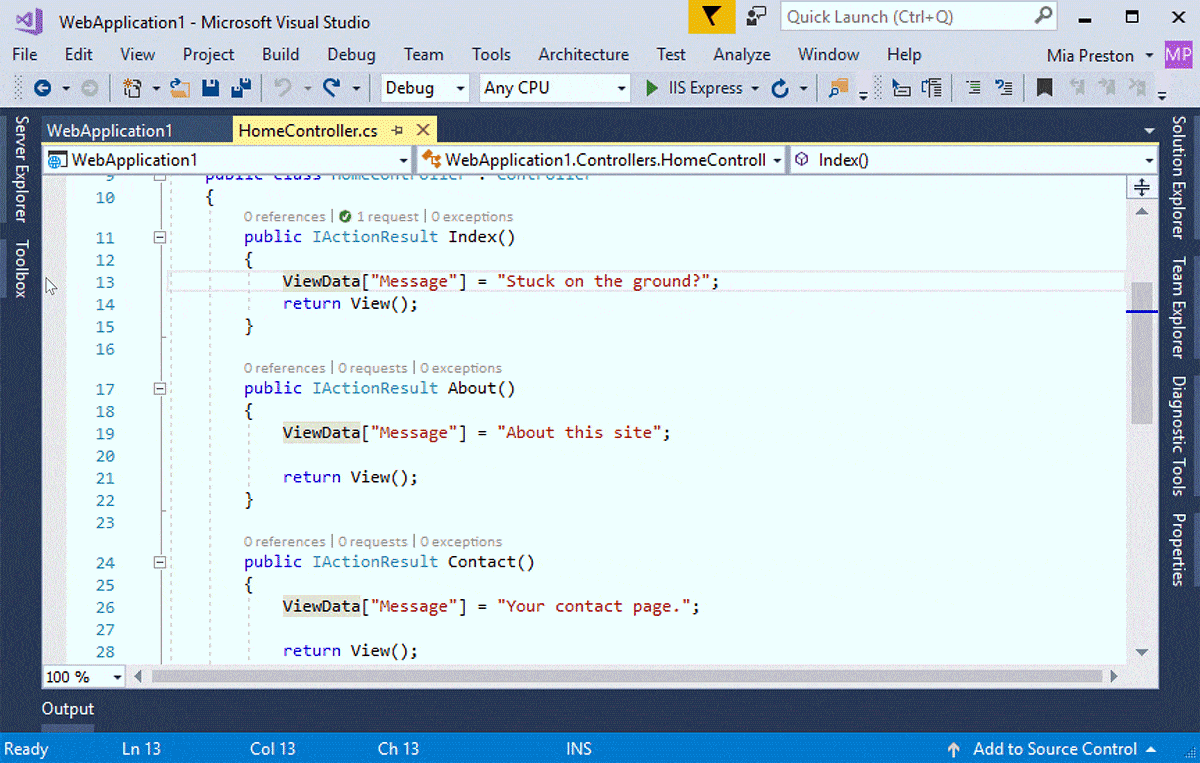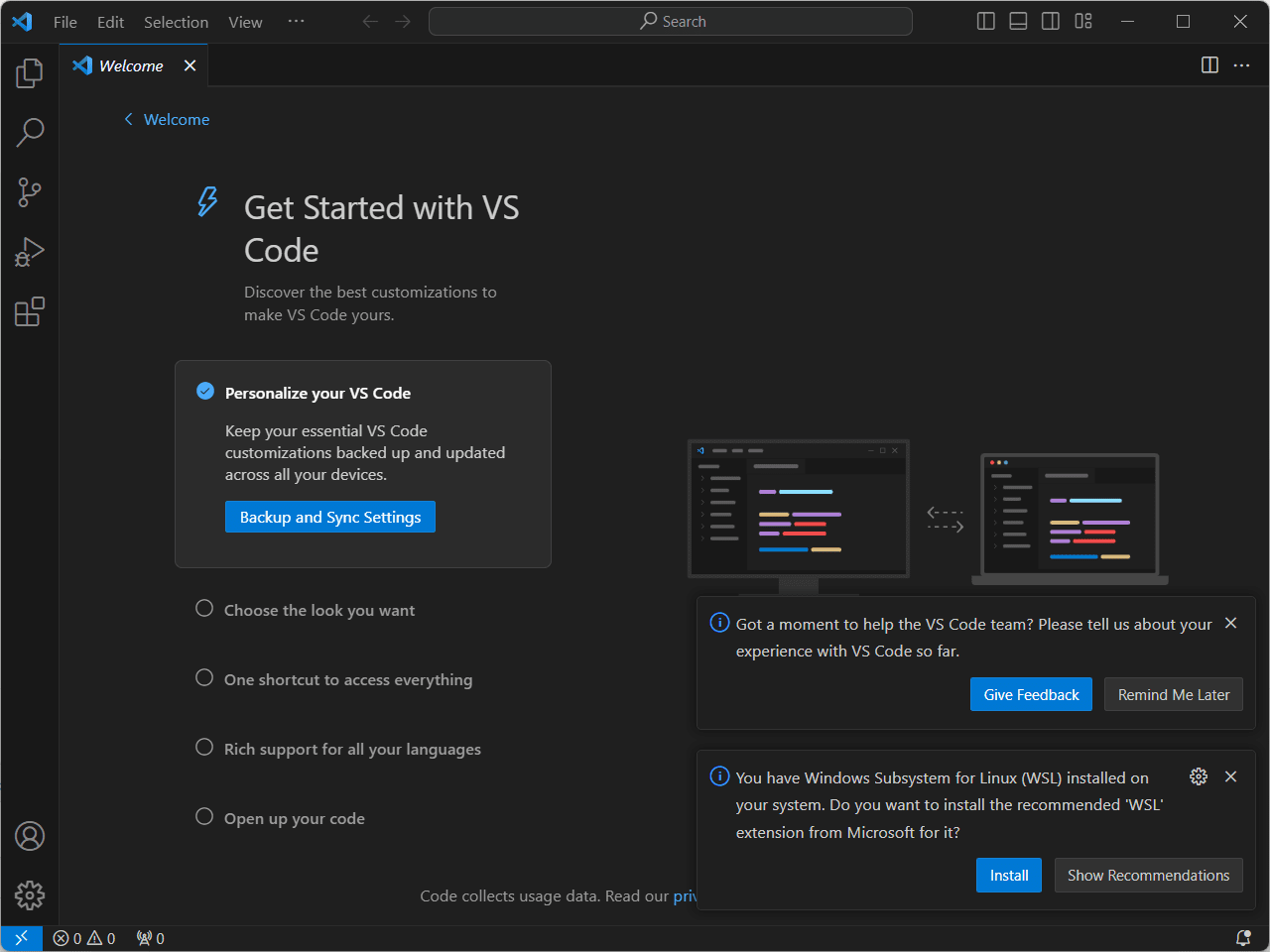Microsoft has a wide range of software and other products for both consumers and developers, Visual Studio and Visual studio code are one of them. And because of there similar names, we are always get confused between Visual studio code and visual studio, when it comes to opting them. What is the difference and who should go for which? Here in this basic, short, crisp and quick comparison article, we know about that.
Difference between Microsoft’s Visual Studio Code and Visual Code?
What is Visual Code:
Visual Studio (VS) is a series of development kits created by Microsoft. VS is a complete set of development modules that includes tools needed throughout the software lifecycle, such as UML tools, code management tools, integrated development environments (IDEs), and more. The Key purpose of this development software is to provide a extensive and complete platform to developers for writing codes on Windows and macOS supported platforms. In short, it is a full-fledge Integrated development environment available in three editions- Community (free once with limited features), Professional and Enterprise the paid ones.
Visual Studio free community and professional versions have no much differences. However, since the beginning, this IDE software has only paid editions until Microsoft released a free community version. You can know more about the difference among these editions features from here.
You can use its flexible and agile planning tools such as capacity planning, task boards, and backlog management to implement incremental development techniques and agile methods at your own pace. Use advanced modelling, discovery, and architecture tools to describe your system and help ensure that your architecture vision is implemented.
Advanced development tools, debugging features, database features, and innovative features are available in it to help you quickly create the most advanced applications and develop new ones on a variety of platforms.
It helps the developer to write apps and games for Windows devices, mobile app development for Android, iOS and Windows, Azure Apps building, managing and deploying, Office tools development; with built-in tools we can design, code and debug games; writing of own extensions for Visual studio is possible, and develop and deploy SQL Server and Azure SQL databases.
So, in short, with Visual Studio, you can develop, analyze, debug, test, collaborate, and deploy software.
A glimpse of Visual Studio features:
- Mainly used for C/C++ (Windows), .NET and C# projects along with SQL Server, database, etc.
- Advanced IntelliSense (the code completion component)
- Cod refactoring
- High system requirements
- Cross-platform application development without leaving the IDE.
- Thousands of extensions to customize IDE
- PowerPoint Storyboarding, Code Review, Task Suspend/Resume, Team Explorer (third-party development tools support)
- One-Click Web Deployment
- Graphics Debugging
- Remoted iOS Simulator for Windows
- Native iOS and Android UI Designers
- Xamarin.Forms
- And more…
Visual studio code integrates all the features that a modern editor should have, including syntax highlighting, customizable hotkey binding, Auto Rename Tag, code spell checker, parenthesis matching; Debugger for Chrome (Debug JavaScript code running in Google Chrome from VS Code), cloud support and code snippet collection. This editor also has Git out of the box support.
When it comes to Windows users those have the support of so many different code editors, VS code is not a big deal for them however for Linux where things are limited, it is a great temptation.
Feature glimpse of Visual Studio Code:
- Simple UI and mainly oriented around files, not projects.
- An alternative for Sublime Text or Atom on Electron like code editors.
- Based on Electron framework
- Limited IntelliSense for Microsoft file types and similar features.
- Mainly used for client-side technologies (HTML, JavaScript, and CSS).
- Has an integrated terminal (PowerShell)
- Low system requirements and more…
Conclusion:
Visual Studio does not work with project files which are possible with development environments like Microsoft Visual Studio and Eclipse. Instead, it works at the file and folder level. So, all you have to do is open a file or folder to start development. Being an editor VS Code interprets the information contains in a file that can be edited using corresponding supported language or extensions.
For example, if a folder contains a Node.js package.json file, VS Code uses the information it contains to provide project and platform-specific features such as matching autocomplete. TypeScript projects require an extension.
VS Code is a code editor light in weight and uses to edit, debug and run difference source code of programs while VS is a full-fledges IDE for project development and comes with all features to support them such as database, configurations, server setup and more…
Visual Studio can’t run on Linux, VS Code can run. On the other hand, Visual Studio for Windows has Linux/C++ workloads and Azure support.
Microsoft has configured both the developing software very closely, however, the range of abilities is different. Developers those are are occupied with quick debugging, code editing and testing of codes, the Visual Studio code is generally their first choice whilst big project and app development for cross platforms with the support of full developing eco-system, Visual Studio perhaps more dependable.
Note: The above explanation and analogy submitted by a Guest author...
Other Articles:
- Install Visual studio code on Ubuntu 19.04 Linux
- How to download and use Visual studio code portable for Windows 10/8/7 or Linux








Cod refactoring 🐟